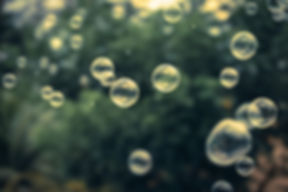The Cure
We think we get over things. We don’t get over things. Or say, we get over the measles but not a broken heart. We need to make that distinction. The things that become part of our experience never become less a part of our experience. How can I say it? The way to “get over” a life is to die. Short of that, you move with it, let the pain be pain, not in the hope that it will vanish but in the faith that it will fit in, find its place in the shape of things and be then not any less pain but true to form. Because anything natural has an inherent shape and will flow towards it. And a life is as natural as a leaf. That’s what we’re looking for: not the end of a thing but the shape of it. Wisdom is seeing the shape of your life without obliterating (getting over) a single instant of it.
–Albert Huffstickler
This poem was posted by, Mark Fleming, a colleague who I met and worked with many years ago. I have had no contact with Mark other than the poems he posts on social media.
Today this poem had a profound effect on me.
I the past couple of hours I have read this poem over and over again. The emotions, memories and visions of my life that this poem evoked have been unnerving and at the same time liberating and strengthening.
To be told there is a “cure” for trauma, hurt and grief, has always enraged me. To the told “get over it” has enraged me even more viscerally than being told there is a cure for what I feel and experience.
The profound effect of this poem is the affirmation in seeing the natural flow of life, the good and the bad. There is something in me that bursts with joy, power, strength and courage when I can shift my mind to seeing the “WISDOM” that can be found in experience. The “WISDOM” that can be found in every form of the experience of life, pain and happiness, rejection and acceptance, peace and chaos. Each of these expressions of life has a form and when I can nurture the experience, the expression rather than obliterating, “getting over”, I am able to bring myself into the flow of life and experience.
Perhaps this poem, and remembering the words, savouring the meaning, will allow me to be able to find the “form and shape” in the pain that that has flowed through my life. Perhaps in remembering this poem, I will be able to bring my pain IN, allow my pain to be a part of me, rather than “getting over” my pain and “obliterating” my pain.

Loving you from here.
Phillip
About Albert Huffstickler ~
“In 1988, Richard Lance Williams wrote in The Austin Chronicle about Huffstickler’s poetry, commenting that “travelling [had] instilled in him a great tolerance for the diversity of human behavior and a deep understanding of how a rootless life can drive one to insanity.” As Williams noted, “his poetry reflect this diversity.” “Long or short, elegies or curses, comic or obscene, sad or jubilant, but always in his vocabulary of ideas,” Williams continued, “his poems speak to the longing of a human for an understanding of their place in this strange, dangerous universe.” After another interview with Huffstickler in 1989, Williams commented on Huffstickler’s interest in “the artist’s blessing, the curse; why artists have to create because the terror is so great, the universe without them so incomprehensible, too comprehensible….” As he requested in a poem, Huffstickler’s ashes were scattered in an arroyo outside of Santa Fe, New Mexico, and by chance or fate, the arroyo turned out to be on Hyde Park Road. As Williams’s eulogy concluded, Huff remains “a soul who even now is on a bus somewhere between here and eternity.”

Photo of Albert Huffstickler, taken in 1999

